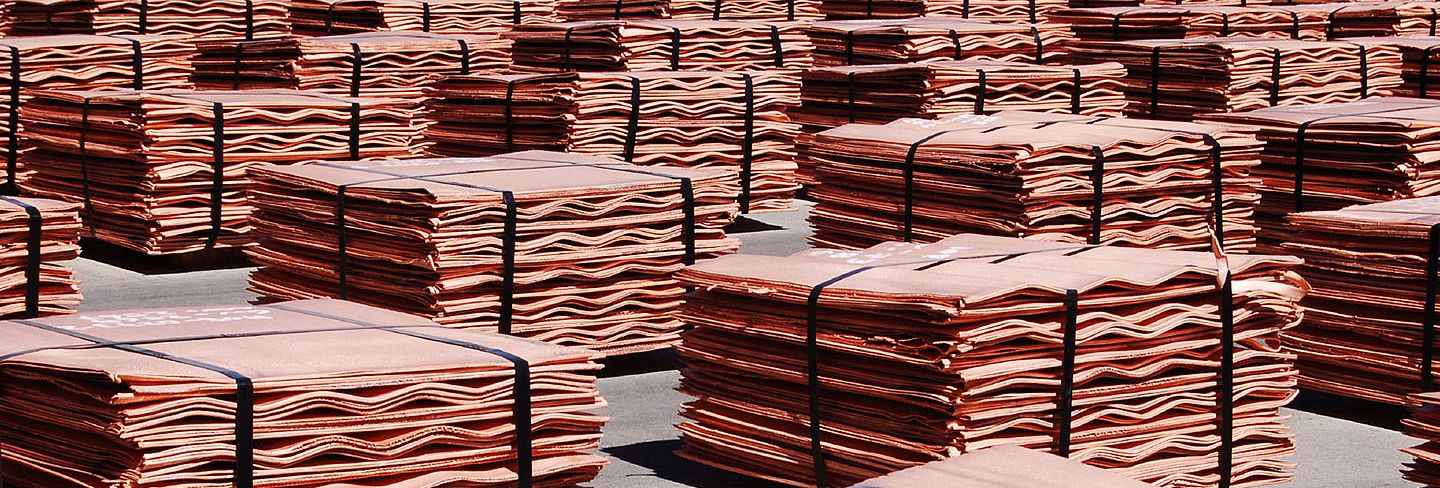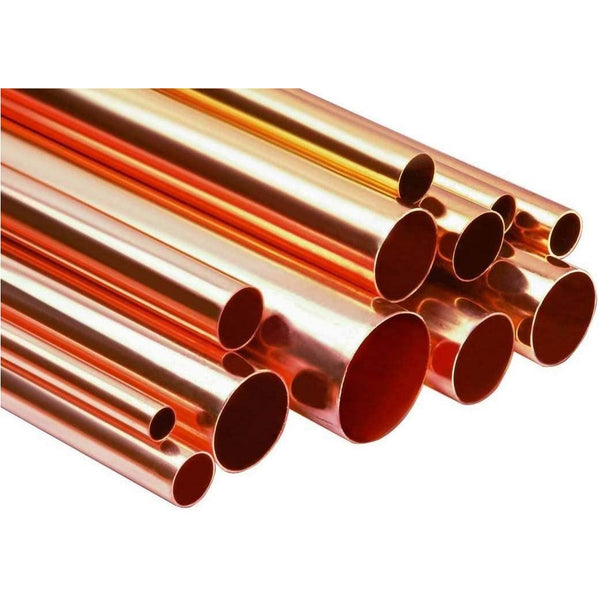Exactly How Copper Products Add To Sustainable Practices in Different Markets
In renewable energy systems, for instance, copper boosts the functionality of solar and wind innovations, while its application in construction reduces waste through durability. As markets look for to take on more lasting methods, the function of copper can prove pivotal in achieving ecological goals.
Copper in Renewable Resource
Copper plays an important function in the innovation of renewable resource modern technologies, working as a vital conductor in various applications. Its outstanding electric conductivity and resistance to corrosion make it an optimal product for electric circuitry, which is necessary in photovoltaic panels, wind generators, and energy storage systems. In solar photovoltaic systems, copper is made use of in the affiliations and wiring, enabling efficient energy conversion from sunshine to power.
In wind power, copper is important to the generators and transformers that transform kinetic power into electrical power, guaranteeing ideal performance and reliability. Additionally, the demand for electric cars (EVs) is raising, with copper being an essential component in batteries, motors, and charging framework. The transition to EVs significantly improves the need for copper, as these lorries usually use four times more copper than conventional interior combustion engine vehicles.
As the world looks for to alleviate environment change and transition to lasting energy resources, copper's role comes to be significantly important. The material not only boosts the effectiveness and toughness of renewable resource systems however likewise sustains the broader goal of decreasing greenhouse gas emissions and promoting a sustainable future.
Eco-Friendly Building And Construction Products
In the last few years, there has been a noteworthy change towards the adoption of green construction materials in reaction to growing environmental concerns. This change is encouraged by the requirement for sustainable options that decrease ecological footprints while keeping structural stability and aesthetic appeal.
Copper, known for its resilience and recyclability, has emerged as a principal in this sector. It can be utilized in roof covering, pipes, and electric systems, contributing to power performance and decreasing waste. Copper's long life means less substitutes with time, additional boosting its sustainability profile.
Additionally, materials such as bamboo, reclaimed wood, and recycled steel are obtaining appeal. These options not only supply reduced environmental effect but likewise advertise resource conservation. As developing codes increasingly stress sustainability, designers and contractors are integrating these materials into their jobs, promoting development in design.
The enhancing fostering of environment-friendly building materials reflects a broader commitment to sustainability in the developed atmosphere. By focusing on these products, the building market can considerably minimize its carbon impact, align with regulative requirements, and sustain a much healthier ecological community for future generations. This trend notes a crucial action towards a more lasting future in building.
Copper's Duty in Health care
Recent research studies have highlighted the substantial role of copper in healthcare settings, particularly as a result of its antimicrobial properties. Copper surfaces have been shown to reduce the existence of pathogens, consisting of germs and viruses, by as much as 99.9% within a short duration. This exceptional efficacy makes copper an important material for high-touch surfaces in hospitals, such as doorknobs, bed rails, and IV poles, thereby adding to enhanced infection control measures.
Along with its straight antimicrobial effects, copper also plays a duty in the broader context of hospital sustainability (Copper Products). By integrating copper right into medical devices and home furnishings, healthcare centers can reduce the incidence of healthcare-associated infections (HAIs), which not just improves client results but additionally decreases the costs related to extensive healthcare facility remains and extra treatments
Moreover, copper's longevity and recyclability line up with lasting techniques, enabling for accountable source administration. As health care systems progressively prioritize both patient security and ecological stewardship, the assimilation of copper products is ending up being extra common. This double advantage underscores copper's important payment to a healthier, safer, and more lasting health care setting.
Sustainability in Transport

Additionally, copper's longevity and deterioration resistance contribute to the durability of transport framework (Copper Products). In rail systems, for example, copper parts enhance the integrity and efficiency of signaling and power systems, crucial for decreasing delays and power intake. In addition, copper's function in renewable resource systems, such as solar and wind, supports lasting transport services by giving clean power read the article for electrical transportation options
Investments in copper innovation not just foster sustainability but likewise promote financial development and job production in green markets. As markets make every effort to fulfill rigid ecological laws, the application of copper items in transport becomes a pivotal approach in achieving sustainability goals and promoting a cleaner, much more efficient future.
Copper and Round Economy
As the world increasingly embraces sustainability, the duty of copper in the circular economic situation becomes ever much more substantial. Copper's innate residential properties-- such as its conductivity, sturdiness, and recyclability-- setting it as an essential product in a resource-efficient economy. The round economic situation aims to decrease waste and maximize resource use through recycling and reusing materials, and copper excels in this respect.
The metal can be reused indefinitely without loss of high quality, making it an excellent candidate for sustainable practices throughout various industries, consisting of building, electronic devices, and renewable resource. By recuperating and reprocessing copper from end-of-life items, industries can substantially reduce the demand for virgin materials, therefore lowering environmental influences related to mining and handling.
Furthermore, the combination of copper right into circular economic situation structures not just preserves resources but additionally fosters development. Services that focus on copper reusing contribute to a much more lasting supply chain, enhancing their competitiveness while lining up with governing demands and consumer choices for ecologically liable items.
Conclusion
To conclude, copper items significantly add to lasting practices throughout numerous these details industries. Their important role in enhancing sustainable power modern technologies, promoting eco-friendly construction products, sustaining infection control in medical care, facilitating sustainable transportation, and symbolizing the principles of a round economic situation underscores the convenience and significance of copper. By incorporating copper into numerous applications, sectors can accomplish higher effectiveness, decrease environmental effect, and align with worldwide sustainability goals, ultimately fostering a more sustainable future.

Copper's outstanding conductivity makes it a preferred product in electrical car (EV) systems, boosting power effectiveness and performance. Furthermore, copper's function in renewable energy systems, such as solar and wind, sustains lasting transportation solutions by offering tidy energy for electrical transportation options.
Their crucial role in improving sustainable power technologies, promoting green construction products, supporting infection control in healthcare, facilitating lasting transportation, and embodying the concepts of a circular economic situation emphasizes the versatility and value of copper.